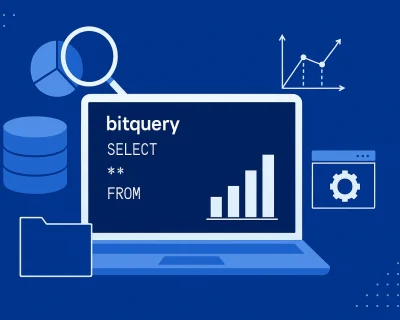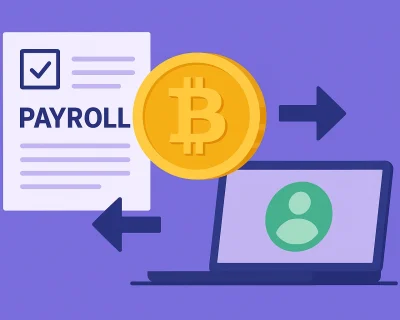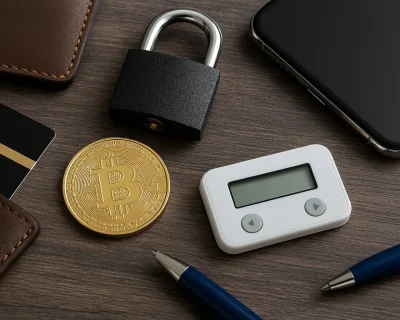The New Digital Revolution | How Cryptocurrency is Reshaping The Internet
The cryptocurrency market continues to evolve and is slowly starting to bear fruit. In this article, we are going to explain to you how blockchain technology is currently changing the internet into something more decentralized.
The new internet
Since the beginning of the internet, user information has been tracked by tech giants and/or companies. This is why many people think that privacy is becoming more and more important. You might have heard of web 3.0 (or the internet 3.0) before. Cryptocurrencies are currently accelerating this new development. This is where the new internet browser ‘Brave’ comes into play.
Brave, a new and innovative browser, is more secure, twice as fast as Google Chrome, and gives the user the power to control ads. In addition, the browser has an enormous advantage due to the fact that cookies and other tracking tools are not allowed. Users themselves can decide whether they want to see ads or not. A strong feature for those who value privacy and control. Additionally, the browser is linked to a cryptocurrency called BAT (Basic Attention Token).
By using the browser and watching ads you earn BAT tokens, which you can then spend or keep within your wallet (the browser also supports chromium-based wallets) The whole idea of this system is that you can support your favorite content creators. If you decide to donate your earnings (BAT-tokens) to a specific content creator of your choice, the recipient will be able to convert those BAT-tokens into a currency of their own choosing. Users and content creators will be connected through a decentralized network with this browser.
So what is the downside of this browser? Companies whose revenue is based on advertisements will have less revenue when browsers like this one are used more often. So it has financial implications for companies and marketing teams that are heavily involved in advertising.
However, Brave Browser has a solution for this, you can choose the content creators in your settings to whom you can automatically donate your generated coins. Simply put, the users are in control.
Decentralized Virtual Private Networks (dVPN)
As you may know, using a VPN is a normal thing these days. People find privacy increasingly important and do not want to be watched by others. In addition, a VPN connection allows you to view content that is not actually available in your country.
However, most VPN connections still store data in one central location. This means that it is still possible that your data will be sold or, even worse, stolen.
Blockchain technology ensures that all this data can be decentralized. No third party is used to manage, sell or read all the data. As a result, you are truly anonymous. Even if the network is hacked, the users’ information is safe.
But how does a decentralized VPN work? Basically, users can make their pc bandwidth available to the network. Your computer will function as a server on which data transmissions take place. This data is protected by cryptography so that no one can read it.
Decentralized cloud storage
Many companies now offer online file storage (Cloud storage). It’s easy, fast and it doesn’t take up any space on your computer.
Of course, there is a catch, which is that all your data is managed by a central organization. If these central services go offline you cannot access your files. So, of course, decentralized file-hosting platforms like StorJ Labs or Filecoin seem like a logical solution.
Decentralized platforms like these don’t have their own servers where data is stored and thus work peer-2-peer. Instead, they will encrypt your files and chop them up into multiple pieces. These files then are distributed among thousands of computers. So only you can open this file, no one else can.
Even if one of these computers were to fail, there would be no danger to your files. The goal of these file-sharing services is to rectify some of the concerns facing the file sharing and cloud storage sectors.
Your files are distributed across the network, but thanks to decentralized cloud storage it can also be done the other way around. The space on your hard drive can also be rented out in order to participate in the decentralized network (i.e. storing other people’s encrypted files).
So it is possible to rent, say, 500GB of your hard drive to file-hosting platforms in exchange for cryptocurrency tokens. The value of these tokens will be the reward for maintaining the network.
It can be expected that this way of data distribution will increase tremendously in the future because of the extremely high security and opportunities it offers.
The disadvantages of this system are similar to the problems of a decentralized VPN. With data being almost impossible to delete on a decentralized network, new problems might surface in the future. For now, decentralized cloud storage is going to change the way we view the internet.
It really is the safest way to store your files in the cloud.
Decentralized Streaming
We’ve talked about decentralized VPNs and decentralized cloud storage. But what about the biggest Internet hype of the last few years? Is it possible to decentralize streaming? The answer is yes.
Even in affluent countries, we suffer from it, slow internet and long loading times. Blockchain technology has ensured that we can now ensure a better internet experience for everyone. There are millions of people worldwide who cannot use streaming services because of bandwidth issues.
This is because connecting a data center to end-users costs a lot of money. In addition, the rapidly increasing quality in which people stream has grown at a rapid pace, with streams of 4k, 8k, and even virtual reality content. How does it work?
Normally you stream directly to a platform on which your stream will be visible to others, which requires a good computer and fast internet connection.
THETA is an open-source protocol purpose-built to power the decentralized streaming network and will allow for vertical decentralized apps (dApps) to be built on top of the platform to enable esports, music, TV/movies, education, enterprise conferencing, peer-to-peer streaming, and more.
Through projects like THETA, it will be possible to distribute the required computing power (internet consumption) over a decentralized and blockchain-based network. So you connect your computer to the network and let this network use your unused internet.
This bandwidth is then used to improve the quality of the streaming service. You are, of course, rewarded for this in the form of THETA tokens. Currently, the biggest obstacle is the adoption of this technology. In the past few months, the project has gained significant traffic and has even risen to be the number 11 biggest cryptocurrency with a market cap of 10 billion dollars(at the time of writing).
Crypto domains
Everyone who uses the Internet has to deal with domain extensions. The domain extension is the last letter(s) after the dot of a website (for example, .nl, .com and, .eu). Recently, this has been joined by blockchain-based domains (for example: .crypto and .eth).
The ground-breaking thing about these new types of domains is that from now on it is possible to connect a cryptocurrency wallet to the domain. In normal words: it is possible to add a digital bank account to a domain. This means that instead of sending to a bank account, you can send your cryptocurrency to a domain. These domains are already supported by all major browsers such as Google Chrome, Brave, Firefox, Opera, and Edge.
In addition to having new domain extensions, it brings other benefits. Namely, payments through the blockchain are extremely secure. The fact that you now have to pay annually for each domain, meant that you are basically renting the domain name. So it is never really yours. With a crypto domain, you pay once, and then fully own the domain. So no one can ever take your website offline.
The disadvantage of a crypto domain is that no one except the owner can influence the website. If this is a good or a bad thing is currently up for debate, with many people suggesting that no 3rd party should be able to control the data flow.
Conclusion
Cryptocurrency offers many advantages when it comes to security and privacy. Many experts are convinced that blockchain technology will ensure that this will only be improved in the future.
For example, today there are anonymous browsers, new website domains, crypto-graphic VPN systems, extremely secure cloud storage systems, and decentralized streaming services. With these new developments, the internet is guaranteed to change in the near future.













